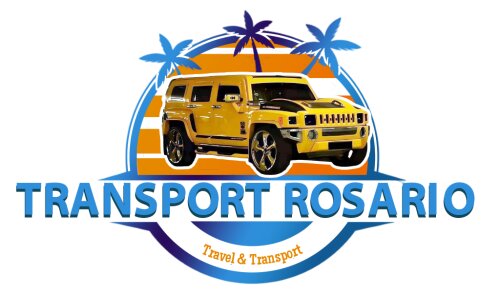Best Agriculture Lawyers in Punta Cana
Share your needs with us, get contacted by law firms.
Free. Takes 2 min.
List of the best lawyers in Punta Cana, Dominican Republic
About Agriculture Law in Punta Cana, Dominican Republic
Punta Cana, situated on the eastern coast of the Dominican Republic, is renowned for its beautiful beaches and vibrant tourism industry. However, agriculture also plays a vital role in the local economy. The region's agriculture is characterized by the cultivation of tropical fruits, vegetables, and other farm products suited to its warm climate. Given the economic importance of agriculture, legal frameworks are in place to regulate activities related to land use, labor, environmental protection, and trade practices. Understanding and navigating these legal landscapes is crucial for landowners, farmers, and agribusinesses operating in the area.
Why You May Need a Lawyer
Individuals and businesses involved in agriculture in Punta Cana may need legal assistance for several reasons. Land disputes are common, particularly involving property boundaries, ownership rights, and leasing agreements. Additionally, farmers might need help with regulatory compliance, ensuring their operations meet local environmental and safety standards. Agribusinesses might require guidance on contracts, trade agreements, and labor laws, especially regarding seasonal workers. A lawyer can also assist in navigating subsidies and grants available to the agricultural sector. Engaging legal expertise can save time, reduce conflicts, and protect financial interests.
Local Laws Overview
The legal framework governing agriculture in Punta Cana is shaped by national agricultural policies as well as regional regulations. Key aspects include:
- Land Use Regulations: Laws governing land ownership, zoning, and use to balance agricultural development with environmental conservation.
- Environmental Laws: Regulations designed to protect the natural resources, such as water resources and biodiversity, that affect agricultural practices.
- Labor Laws: Rules concerning the employment of workers, including minimum wage, working conditions, and employment rights for local and migrant farm workers.
- Trade and Export Laws: Policies regulating the export of agricultural products to ensure compliance with international standards and trade agreements.
Frequently Asked Questions
1. Who can own agricultural land in Punta Cana?
Both locals and foreigners can own agricultural land, but there are regulations that must be adhered to, including limitations on land size and zoning laws.
2. What environmental permits are required for farming?
Environmental permits are necessary for activities that could impact natural resources, such as water extraction or alteration of land use, to ensure sustainable farming practices.
3. How can I resolve a dispute over agricultural land?
Disputes can often be resolved through negotiation or mediation, but legal action may be required. A local lawyer experienced in property law can provide guidance.
4. Are there government incentives for sustainable agriculture?
Yes, the government offers various incentives such as tax breaks and subsidies for practices promoting sustainability, like organic farming and water conservation.
5. What are the labor laws for hiring seasonal workers?
Employers must follow local labor laws that cover contracts, wages, working hours, and conditions for employing seasonal and migrant workers in agriculture.
6. Is certification required for exporting agricultural products?
Exporting certain agricultural products requires certification to ensure compliance with international food safety and quality standards.
7. What steps are involved in purchasing agricultural land?
The process includes conducting a land title search, negotiating the purchase contract, complying with zoning laws, and registering the land transfer with the local authority.
8. How can I access water resources for farming?
Access to water resources requires obtaining the appropriate permits and ensuring compliance with regulations to avoid conflicts and ensure sustainable usage.
9. What legal aspects should be considered in farm succession planning?
Succession planning involves estate planning, tax considerations, and the drafting of wills or trusts to ensure an orderly transition of farm ownership.
10. How can I protect my farm business from liability?
To protect against liability, consider obtaining insurance, ensuring compliance with safety standards, and implementing contracts that clearly outline responsibilities.
Additional Resources
Several local and national resources can provide support and information about agriculture in Punta Cana:
- Ministry of Agriculture of the Dominican Republic: Offers resources and guidance on national agriculture policies.
- Punta Cana Ecological Foundation: Provides information on sustainable agricultural practices.
- Local Agricultural Cooperatives: Offer a network of support and may assist with navigating legal issues through collective resources.
Next Steps
If you require legal assistance in agriculture, consider consulting with a lawyer specializing in agricultural law in Punta Cana. Begin by gathering all relevant documents related to your issue, such as contracts, land titles, and permits. Then, reach out to a legal professional who can provide counsel and develop a strategy tailored to your specific needs. Legal directories or referrals from local agricultural organizations can be a helpful starting point in finding the right lawyer for your case.
Lawzana helps you find the best lawyers and law firms in Punta Cana through a curated and pre-screened list of qualified legal professionals. Our platform offers rankings and detailed profiles of attorneys and law firms, allowing you to compare based on practice areas, including Agriculture, experience, and client feedback.
Each profile includes a description of the firm's areas of practice, client reviews, team members and partners, year of establishment, spoken languages, office locations, contact information, social media presence, and any published articles or resources. Most firms on our platform speak English and are experienced in both local and international legal matters.
Get a quote from top-rated law firms in Punta Cana, Dominican Republic — quickly, securely, and without unnecessary hassle.
Disclaimer:
The information provided on this page is for general informational purposes only and does not constitute legal advice. While we strive to ensure the accuracy and relevance of the content, legal information may change over time, and interpretations of the law can vary. You should always consult with a qualified legal professional for advice specific to your situation.
We disclaim all liability for actions taken or not taken based on the content of this page. If you believe any information is incorrect or outdated, please contact us, and we will review and update it where appropriate.











